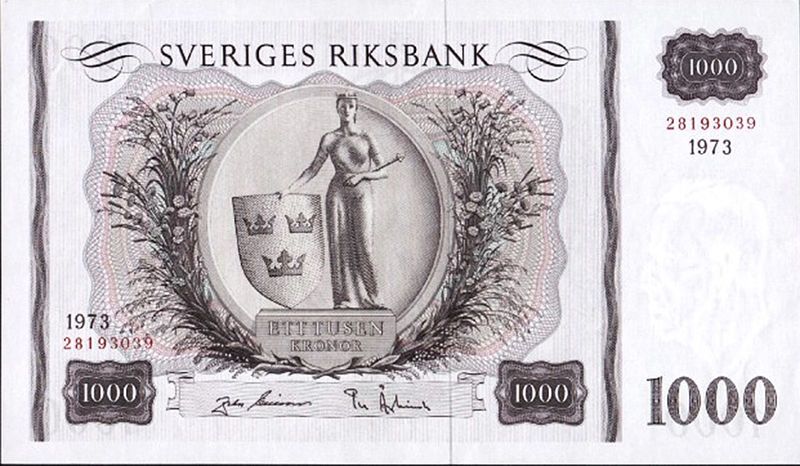Cecilia Skingsley: the e-krona project at WES2018
Visitors to Sweden are almost certain to come across signs saying ‘endast kortbetalning’, that is ‘card payments only’ – Cecilia Skingsley explained at the Warwick Economics Summit. Ms Skingsley is Deputy Governor of the Sveriges Riksbank, the world’s oldest central bank at 350-years old. She pointed out that the ability to innovate has been key to its longstanding success – indeed, Sweden was the first country to issue standardised banknotes. Accordingly, the bank’s ground-breaking ‘e-krona project’ is currently seeking to adapt to the changes brought about by the transition to a ‘digital society’, an issue that will eventually need to be addressed by leaders worldwide.
A cashless economy poses obvious challenges that central banks will need to tackle…
Sweden’s economy has been greatly affected by digital trends in recent years – today it is closer than any other country to becoming a cashless economy as the private sector continues to switch to electronic means of payment. Indeed, there has been an immense 40% drop in the Swedish economy’s cash circulation in the last 8 years, and today less than one-sixth of payments by households are made in cash compared to a global average of around 75%.
As Ms Skingsley argued, the transition towards a cashless economy poses obvious challenges that central banks will need to tackle. Its main drawbacks derive from the fact that electronic payments are managed by the private sector – as the lion’s share of payments in the entire economy are managed by just a few major privately held companies, overall efficiency losses are likely to ensue. Besides, whereas money held in electronic bank accounts is relatively safe, it is clearly not as safe as currency issued by central banks – just consider the run on Northern Rock in 2007.
The project is set to make the Riksbank the first significant central bank to issue a digital currency…
Therefore, there is indeed a vital need for the Riksbank to innovate in the face of increased economic vulnerability due to digitalisation and one would be hard-pressed to think of a more innovative initiative than the ’e-krona project’. Instead of going against the trend of digitalisation, the project is set to make the Riksbank the first significant central bank to issue a digital currency, an electronic account available to households and companies 24/7. The e-krona would serve as a complement to central-bank issued currency, and constitutes an attempt to keep people using central bank-issued money, as opposed to balances managed by the private economy, in an age of digitalisation.
Whereas comparisons with cryptocurrencies such as Bitcoin are inevitable, Ms Skingsley also stressed that the e-krona would be something different, having the added benefit of being a widely accepted means of payment, and perhaps even more importantly, being a stable store of value.
One thing is for certain – the trend of digitalisation is unlikely to reverse in the near future…
Of course, the e-krona project still leaves many questions regarding its implications for monetary policy, its legal aspects, and the technology required. But one thing is for certain – the trend of digitalisation is unlikely to reverse in the near future, and developed countries may well have to face the very same challenges in a few years. It is essential that policymakers listen to the lessons learned as Sweden is once again paving the way forward.

Comments